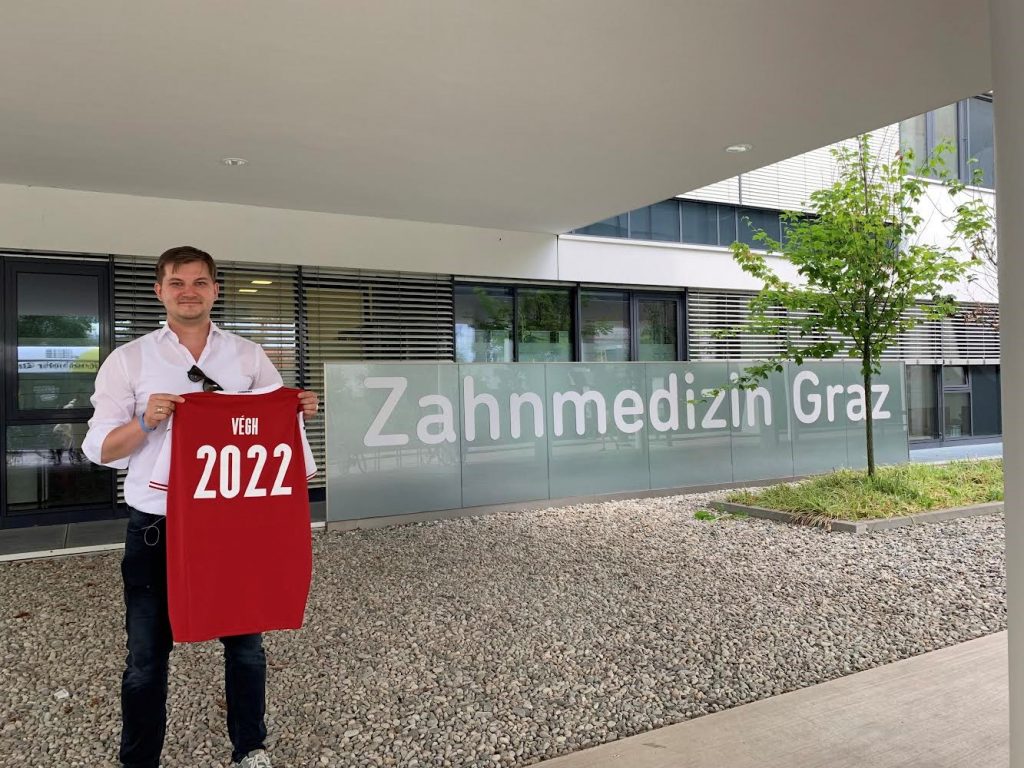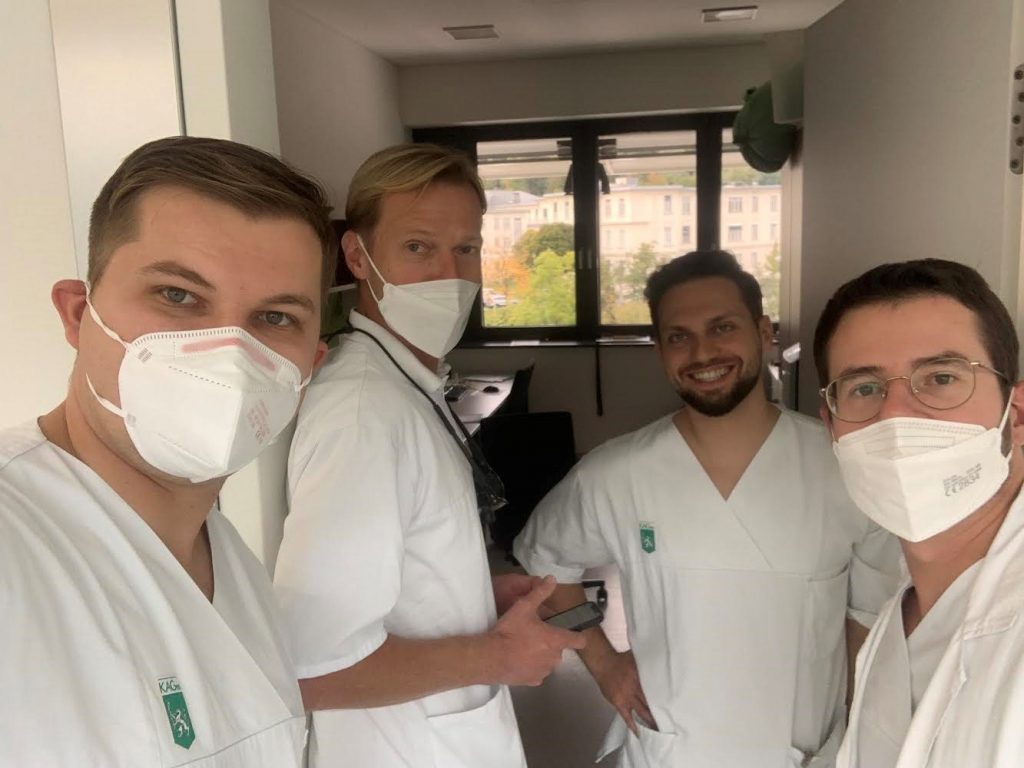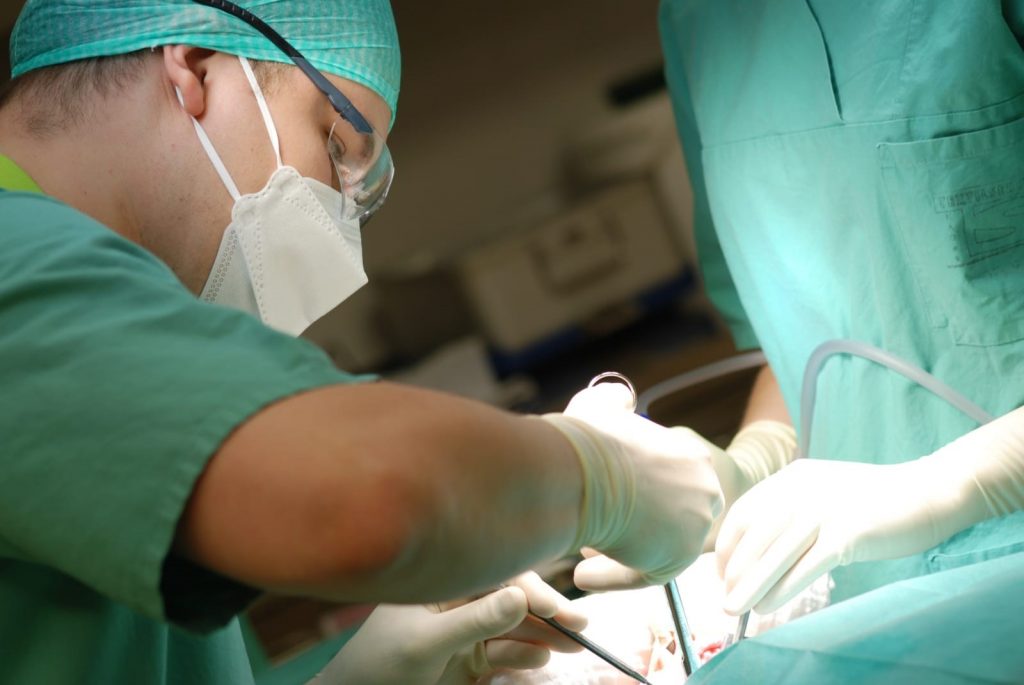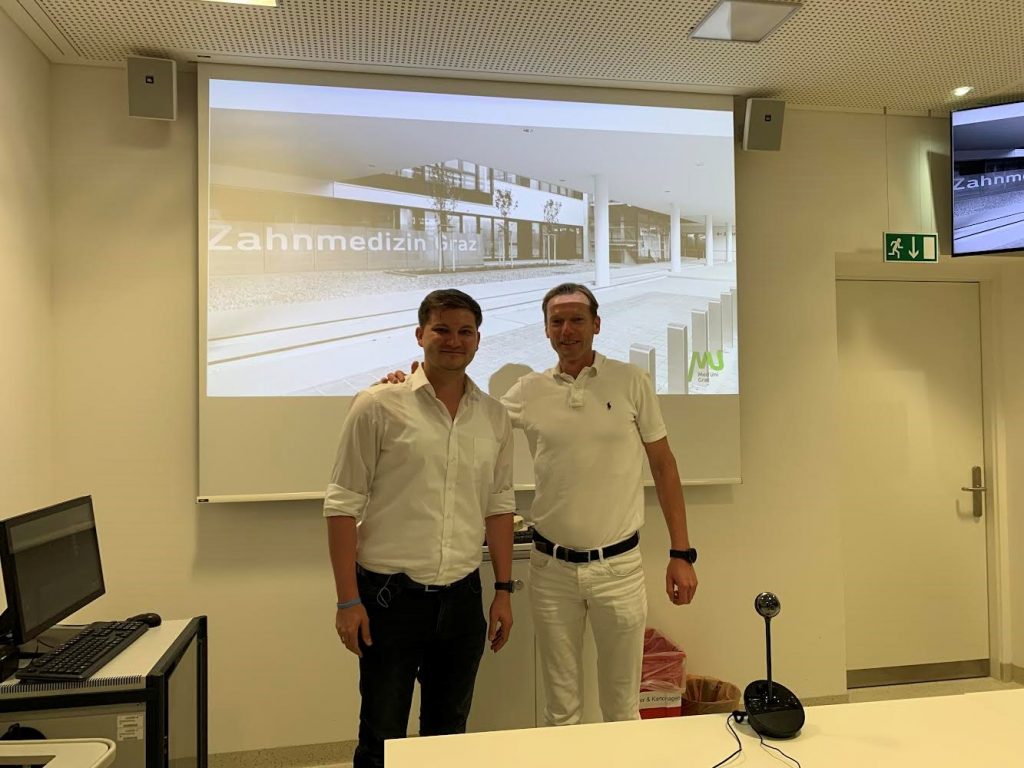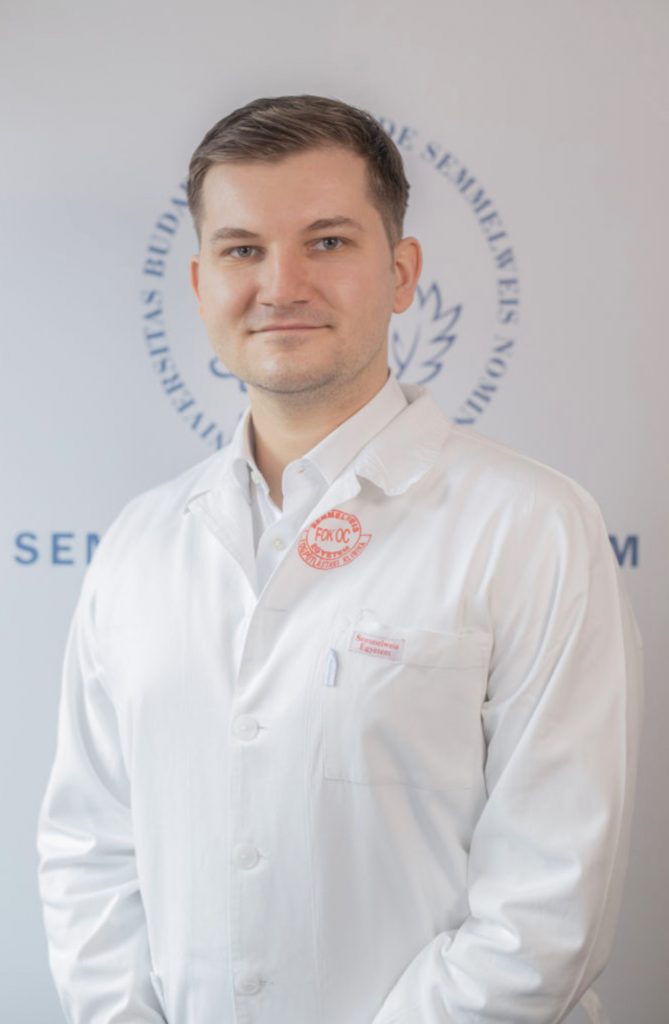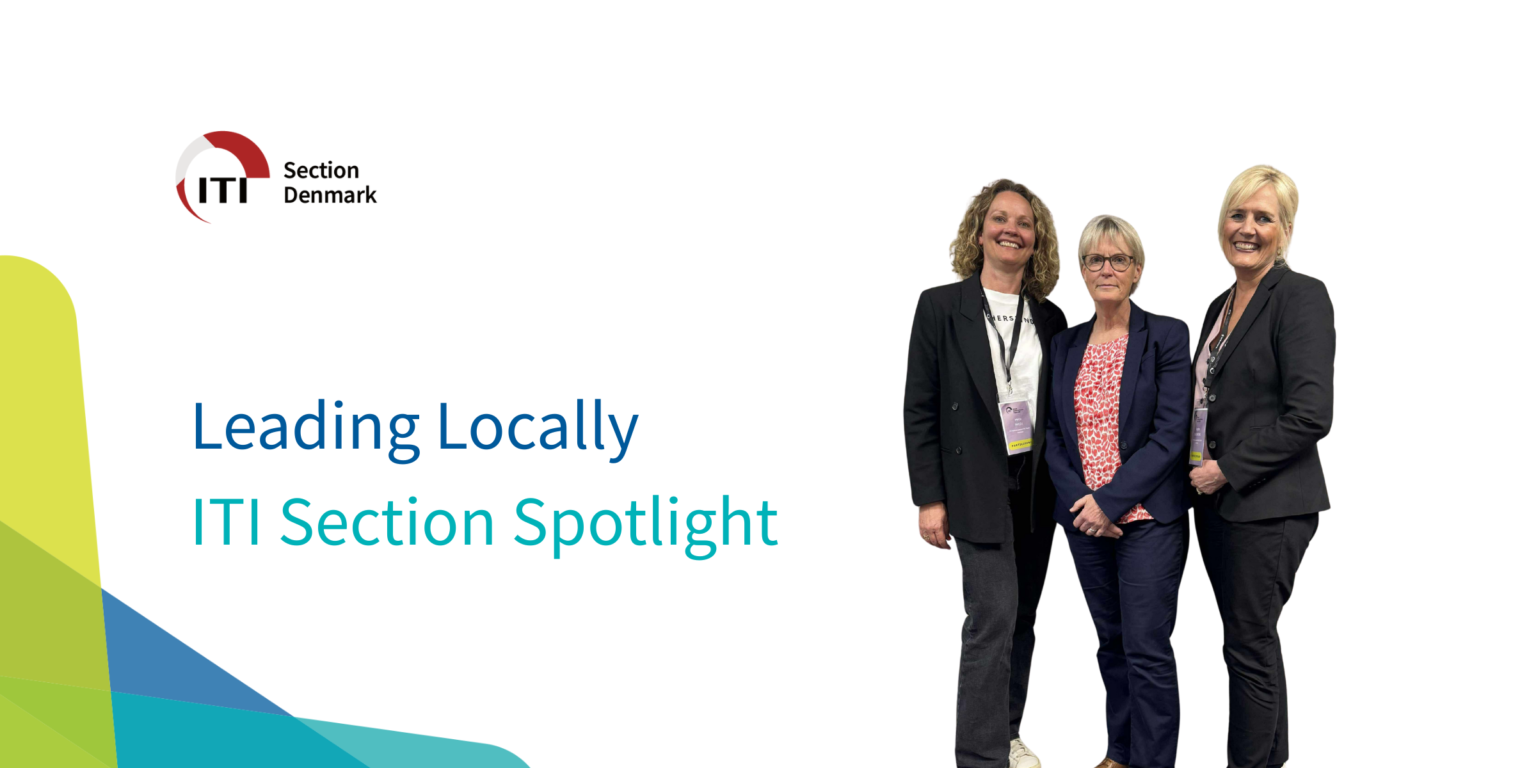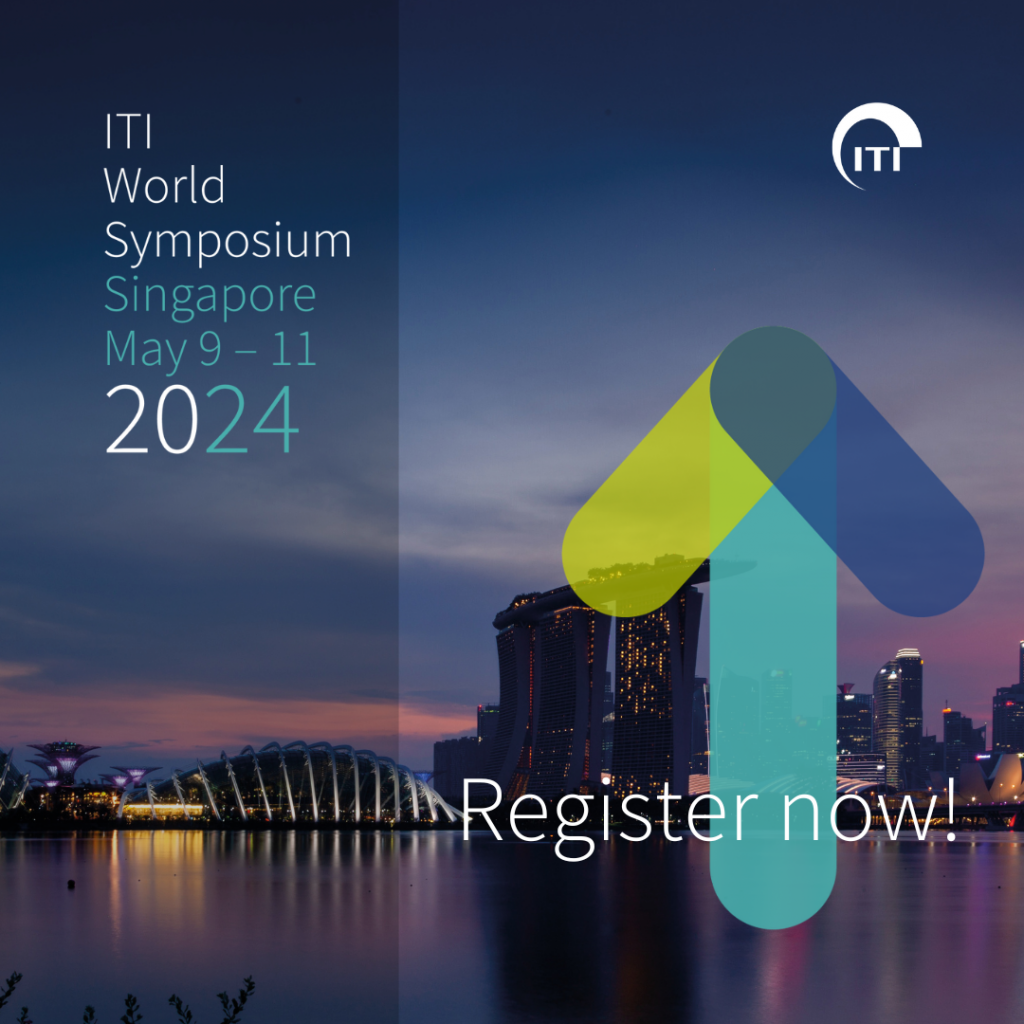Every year in June, the ITI opens the application portal for its Scholarships. We took this opportunity to ask one of our current Scholars, Daniel Vegh from Hungary, about his experience, his daily work and what he likes the most about it. He started his Scholarship year in September 2021 at the ITI Scholarship Center in Graz, Austria.
My name is Daniel Vegh, I am a prosthodontist from Semmelweis University, Budapest, Hungary. I am an ITI Scholar at the Medical University of Graz (2021-2022). My mentors in Graz are Prof. Dr. Michael Payer and Prof. Dr. Norbert Jakse.
What are the three most memorable things you will take away from your Scholarship year?
It is always difficult to move out of your comfort zone, but there are many memorable things I will take away from my Scholarship year. The first one is the great memories with the team and staff in Graz. Everyone welcomed me very warmly, or as they say “Graz to meet you”!
As a prosthodontist, I got full support on clinical planning and evaluation, digital planning and research projects as well. Since my scholarship year started, we have published 8 international peer-reviewed articles, and we are still counting. My mentors and Graz gave me such motivation and inspiration in implantology and oral surgery, that we can call this year a life-changing opportunity. I highly recommend every young professional join the ITI and apply for the scholarship program. You can broaden your horizon in implantology, have some very valuable experiences and make important contacts and friendships that will guide you and your projects in the future.
Could you give us an idea of how your working week is structured?
The first six months of my scholarship were an introductory period, moving between research, observation, and assisting in operations. I tried to visit as many facilities in the ITI center as possible. My role was more as an observer and assistant in operations, but in research I was as active as possible. I needed to understand the system, the people, and the structure of the clinic. After the first 6 months, I am now working in the clinic and helping the team to treat patients.
Monday is surgery day for young disabled patients in the pediatric surgery facility. Under full anesthetic, we do extractions and fillings for patients who live with disabilities and are not able to cooperate. Tuesday is usually operating day with observation or assistance for me, followed by implantology consultations with my mentor (Prof. Payer) on Wednesday. This is usually very interesting, as Prof. Payer does a lot of clinical studies as well (huge honor to work with an ITI André Schroeder prize winner), so we have a lot of patients in different projects (ceramic implant project, implants and antibiotics… ). I am particularly enjoying seeing how an implant consultation is performed by an expert.
On Thursday, I work in the dental emergency room, where I can take advantage of my conservative dentistry background in root canal treatments, extractions or treatment planning. Friday is another operating day, usually with Dr. Barbara Kirnbauer, who is a real expert in digital implant planning. She is helping me to understand and familiarize myself with the fully digitally planned and evaluated workflow. She usually works with a digitally printed full or semi-full guide.
On the weekend I usually participate in courses, or I travel home to work in my private office in Hungary.
Why did you choose this specific Scholarship Center?
Choosing an ITI Scholarship Center is a crucial part of the process. There are many great centers around the world, and getting a place is already a huge success regardless of where the center is located. I had a strategy, though, as I speak German, and Graz is very close to my hometown (Gyor), this was an ideal choice from a geographical point of view. Also, I did my homework, and Graz is an ideal place for me to continue my career. But I believe, that even though I picked Graz, Graz actually chose me, and not the other way round. Graz and I are great friends now!
In the interview, I met with my mentors, and they really respected my previous diabetes-related research projects and wanted to let me work on it in Graz as well. This was also a great sign for me that I had chosen the right center.
Do you get enough support to do your job well?
Everyone has some kind of expectations as a new person entering the Scholarship Center, and so did I. I had to understand that I need to be patient and hard-working to make my dream come true, and treat patients in Graz. I got full support, and my mentors and colleagues respect my efforts. Our publications and the fact that I treat patients and am a full member of the team proves that hard work pays off.
Do you feel you are learning a lot?
Absolutely, yes. I am able to learn from my mentors, who help and support me a lot. For me, the most important thing is to perform implant surgeries under supervision and learn more about implantology. Finally, there are also courses, so while in the clinic, I try to participate in as many implant-related treatments as possible, but I also participate in implantology-related courses and meetings as well. I participated in the ITI Congress in Rome, which was a wonderful opportunity to meet great implantologists, colleagues and fellow ITI Scholars from all around the world. During the day we had great lectures, and in the evenings we had time to get to know each other.
I am also participating in the ITI North America meeting in Atlanta, and the ITI Educational Week at Harvard University. ITI Study Clubs and local courses are also available in Austria, in which I was happy and honored to participate. In Graz there was a special, sinus-lift-oriented human cadaver course, which was unique and very useful, I recommend it to all of my friends who are reading this summary.
What are your plans for the time after your Scholarship when you return home?
I have definitely bonded with implantology, and after my scholarship year, I would like to continue to move forward in this field, in academia and in my private dental office to provide the best solutions for my patients and my students.
I think this year was just the beginning, and I hope I can motivate more colleagues and students to engage with the ITI. I would like to help to grow ITI Hungary and organize some side events with great lecturers and colleagues with whom I have been able to work during my Scholarship year. Graz and Budapest have a strong bond now, and I think you will hear more about our further cooperation in the future.
Why would you recommend our Scholarship program to other young professionals?
I really recommend the ITI Scholarship program, as this is the best and most unique clinical and research program in implantology. If there is any colleague around the world who would like to learn, gain experience and broaden their knowledge and skills, this is the right program. But watch out, this will be a sometimes hard, but absolutely amazing life-changing opportunity to learn the most from implantology.
To provide our patients with the best possible treatment, you need knowledge that can be gained in one of the ITI Scholarship Centers around the world. If you need any further information, please contact the ITI team, or look on the web site, which has all the core information about the application process.
Thank you, ITI, for this opportunity. See you soon!
Each year we enable young implant dentistry talent to spend a year abroad at a highly regarded university being mentored by an ITI Fellow at one of our 34 ITI Scholarship Centers around the globe. Are you keen on getting insight into every aspect of implant treatment? Would you like to dive into the complex world of case planning, implant surgery and prosthetic restorations in an international context? Our application portal is open from June 1 to June 30. Don’t hesitate any longer and apply now!


